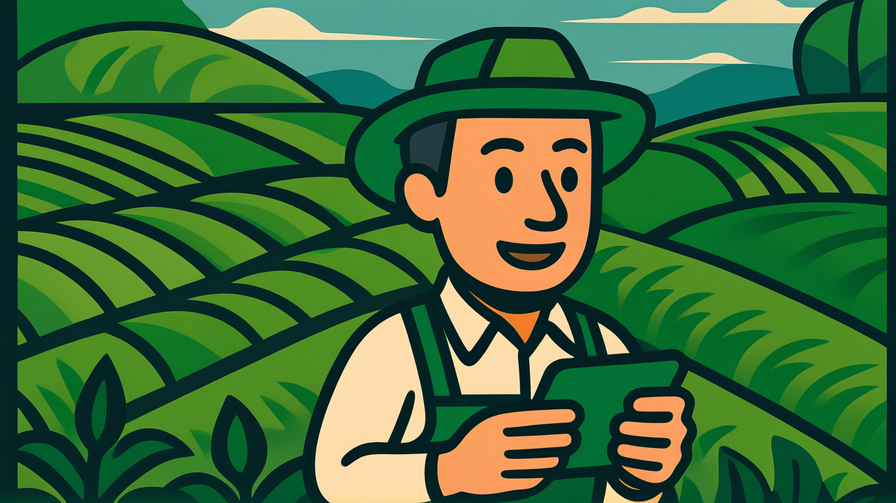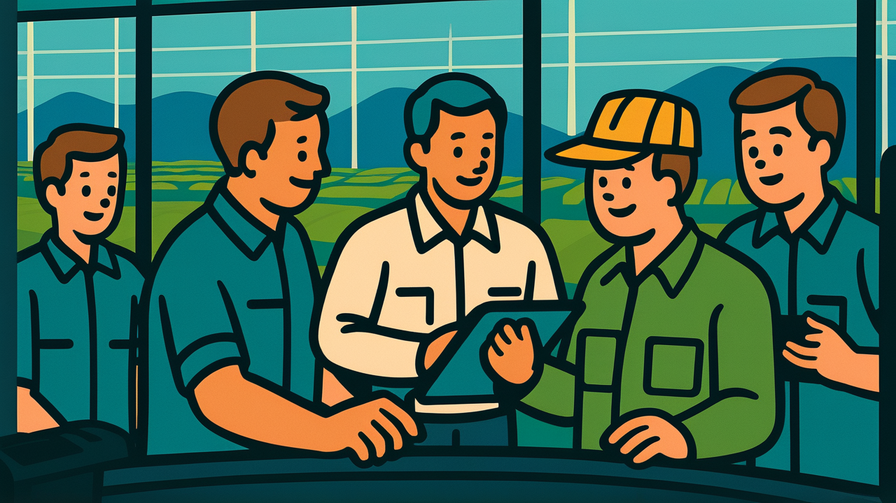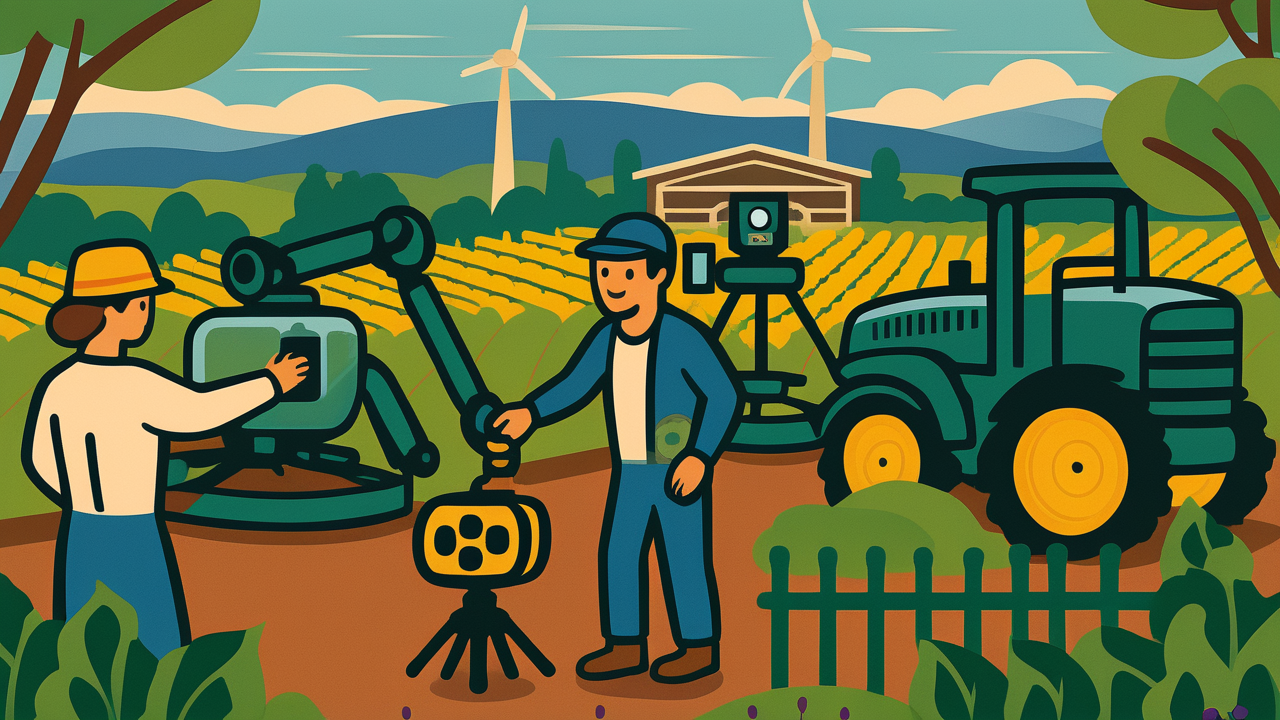[Disclaimer] This article is reconstructed based on information from external sources. Please verify the original source before referring to this content.
News Summary
The following content was published online. A translated summary is presented below. See the source for details.
BASF Digital Farming has launched xarvio FIELD MANAGER For Fruits & Veggies, a revolutionary digital platform that helps farmers grow crops more efficiently using artificial intelligence and data analytics. Starting in late 2025, wine and table grape growers in France, Italy, Spain, and Turkey will access real-time insights about crop health, pest threats, and optimal irrigation timing through their smartphones or tablets. The platform will expand to include tomatoes and potatoes in 2026. By combining weather data, satellite imagery, and proven agricultural models, the system provides personalized recommendations for each field, helping farmers increase yields while reducing pesticide use and environmental impact. Over 120,000 farmers worldwide already use xarvio’s technology across 20 million hectares of farmland.
Source: BASF Agriculture Press Releases
Our Commentary
Background and Context

Imagine playing a farming video game where you get real-time alerts about your crops, weather warnings, and tips for the perfect harvest. That’s basically what xarvio FIELD MANAGER does—but for real farmers growing real food!
BASF, one of the world’s largest chemical companies, isn’t just about test tubes and laboratories. They’re using artificial intelligence and big data to revolutionize how we grow food. Think of it as giving farmers superpowers through their smartphones.
This technology matters because the world needs to feed 10 billion people by 2050 while using less water, fewer chemicals, and protecting the environment. Traditional farming methods alone won’t cut it—we need smart solutions that help farmers make better decisions every day.
Expert Analysis
The xarvio platform represents a convergence of multiple cutting-edge technologies:
• Satellite monitoring: Eyes in the sky track crop growth and spot problems early
• Weather modeling: Predicts conditions days ahead to optimize spraying and harvesting
• AI disease detection: Identifies plant diseases before human eyes can see them
• Precision agriculture: Treats each field individually rather than using one-size-fits-all approaches
What makes this revolutionary is the Decision Support System (DSS) from Horta, which BASF acquired in 2022. It’s like having an expert agricultural advisor available 24/7, analyzing millions of data points to give personalized recommendations.
Additional Data and Fact Reinforcement
The scale and impact of digital farming is impressive:
• 120,000+ farmers already use xarvio technology globally
• Covers over 20 million hectares (about the size of Nebraska!)
• Can reduce pesticide use by up to 30% through precise timing
• Helps document CO2 emissions for sustainability reporting
• Initial markets represent 60% of Europe’s wine production
The platform’s expansion to vegetables like tomatoes and potatoes is strategic—these are high-value crops where small improvements in yield or quality translate to significant economic benefits.
Related News
Digital farming is exploding globally as technology meets agriculture:
• John Deere’s autonomous tractors use AI to plant and harvest without drivers
• Drones equipped with multispectral cameras detect crop stress invisible to human eyes
• Microsoft’s FarmBeats project uses AI to predict optimal planting times
• Indoor vertical farms use sensors and AI to grow vegetables with 95% less water
The European Green Deal aims to reduce pesticide use by 50% by 2030, making tools like xarvio essential for meeting environmental goals while maintaining food production.
Summary

BASF’s xarvio FIELD MANAGER represents the future of farming—where data, not guesswork, drives decisions. By putting powerful analytical tools in farmers’ hands, this technology helps grow more food with less environmental impact.
For students interested in technology, environmental science, or agriculture, this field offers exciting career opportunities. Future farmers might spend as much time analyzing data as driving tractors. Computer scientists can help feed the world by developing AI that understands plant diseases. Environmental engineers can design systems that maximize yield while protecting nature.
The message is clear: solving global food challenges requires combining traditional farming wisdom with cutting-edge technology. The farmers of tomorrow will be as comfortable with apps as they are with soil.
Public Reaction
Early adopters of digital farming report transformative results. An Italian vineyard owner shared: “The app warned me about disease risk three days before I would have noticed. That early treatment saved 80% of my grape harvest.”
Younger farmers particularly embrace the technology, seeing it as making agriculture more attractive as a career. However, some older farmers express concerns about technology replacing traditional knowledge, though most find the tools complement rather than replace their expertise.
Environmental groups cautiously support the technology, noting that data-driven precision reduces chemical use but emphasizing the importance of maintaining biodiversity and soil health.
Frequently Asked Questions
Q: Do farmers need to be tech experts to use this?
A: No! The app is designed to be as user-friendly as social media apps. It translates complex data into simple recommendations like “spray tomorrow morning” or “irrigate this weekend.”
Q: How does this help the environment?
A: By applying pesticides and water only when and where needed, farmers use less of everything. It’s like having a smart thermostat for your fields—more efficient and less wasteful.
Q: Will this replace farmers with robots?
A: Not at all! It empowers farmers with better information. Farmers still make all decisions; the technology just helps them make smarter ones based on data rather than guesswork.


